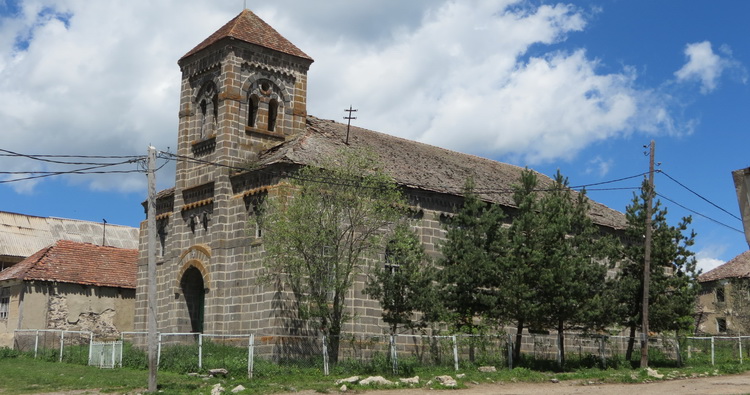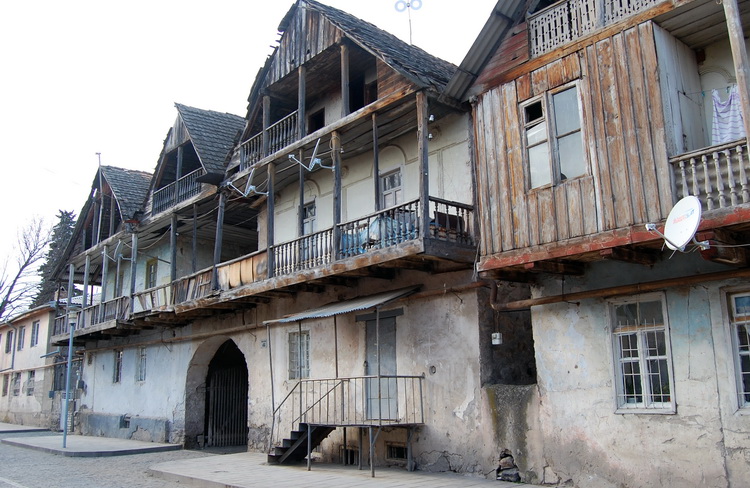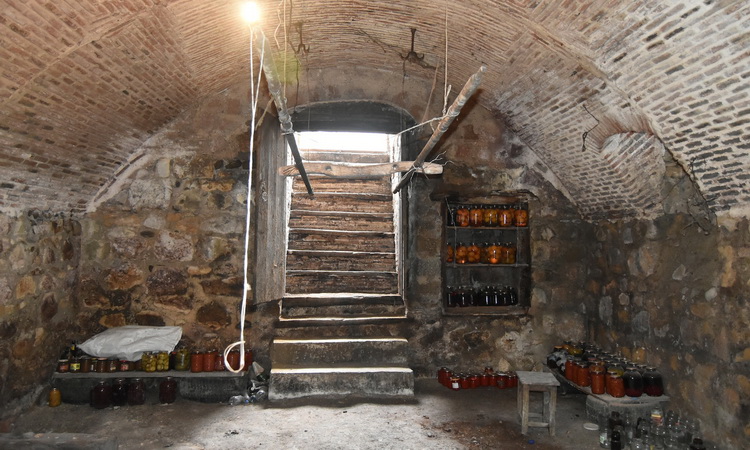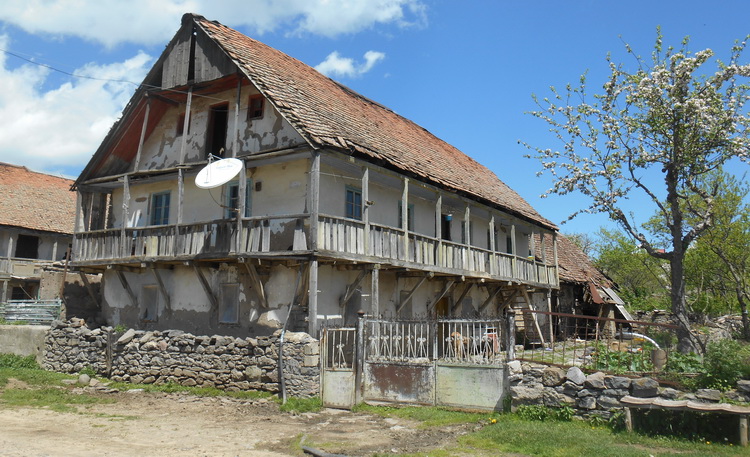State project to research German settlers’ legacy in Georgia as UNESCO celebrates their anniversary

A church built by German settlers in today’s Trialeti in Georgia’s south. Photo: Georgia’s Culture Ministry press office.
Georgian cultural institutions are studying the traces and history of 19th century German settlements in the country, as the UNESCO celebrates their anniversary in the South Caucasus.
As Chancellor of Germany Angela Merkel is visiting Georgia with an official visit on August 23 and 24, diplomatic and cultural ties between the two states is again under spotlight.
While Merkel is on her second trip to the country in 10 years, the connections between the nations extend back to the mid-to-late 1810s, when German settlers arrived in the Caucasian region.

Houses built with German architectural style in Katharinenfeld (now Bolnisi). Photo: Georgia’s Culture Ministry press office.
The legacy of their life, culture and creativity is now celebrated in a “large-scale project” of the National Agency for Cultural Heritage Preservation of Georgia with the support of the Ministry of Education, Science, Culture and Sport.
It involves experts researching the architecture, artwork and other exhibits by and about the settlers who lived in colonies like Marienefeld, Petersdorf and Freudental (currently the village of Sartichala in the Gardabani Municipality) and Neu-Tiflis (today the area of Agmashenebeli Avenue and surrounding streets in Tbilisi).
The history of settlements began in 1815, when Emperor Alexander I of Russia visited the southern German city of Stuttgart and witnessed the persecution of local peasants pursuing non-Lutheran Protestant religious practices.

A cellar of a house in the colony of Marienfeld (now the village of Sartitchala). Photo: Georgia’s Culture Ministry press office.
The Russian emperor arranged a resettlement of the oppressed communities to the Caucasus including Georgia’s capital Tbilisi and the Kvemo Kartli region.
The first settlement was established by communities of Swabian Germans near Tbilisi in September 1818, with further migrant groups settling in Tbilisi, Katharinenfeld (now Bolnisi) and the north-western Abkhazian region.
The legacy of daily life and overall cultural and scientific work of the resettled Germans can now be found in various towns and cities in Georgia including the capital.

A former settler house in Trialeti. Photo: Georgia’s Culture Ministry press office.
While houses built by the settlers can be found in former colonies in the Georgian countryside, there are also buildings like the National Gallery, the Classical Gymnasium and the city council in capital Tbilisi that bear the legacy of German architects in the country.
The work on researching this heritage falls within Georgia’s participation in the European Year of Cultural Heritage 2018, as well as UNESCO’s celebration of 2017 and 2018 as the anniversary years for the settlements in Georgia and Azerbaijan.
Last year, cultural occasions also marked the Year of German-Georgian Friendship — an official designation celebrating 25 years of diplomatic relations between the two countries.
 Tweet
Tweet  Share
Share